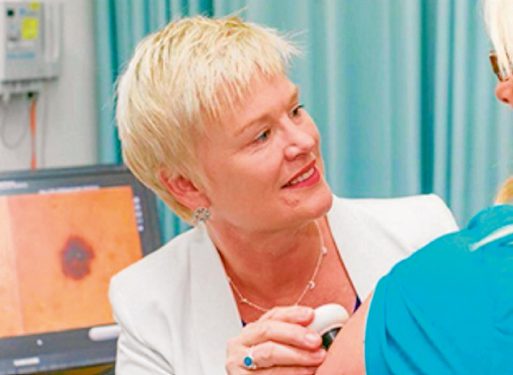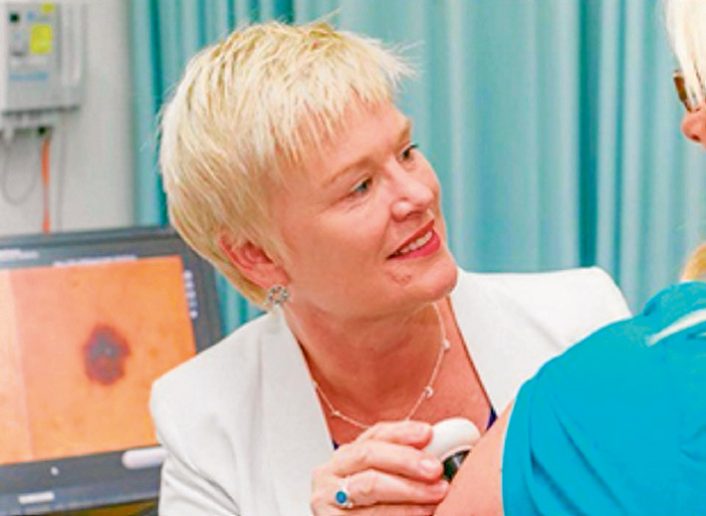
PENINSULA Skin Cancer Centre’s Dr Sally Shaw is worked up about what she calls “the misrepresentation of melanoma in the news”, especially regarding the recent return to football of Hawthorn forward Jarryd Roughead.
“Melanoma is not a cancer scare, it’s a cancer reality, and Roughead continues to be at high risk of advanced melanoma,” she said. “The term cancer scare should be reserved for when a mole is thought to be melanoma but comes back benign.
“Having prominent sportsmen as Roughead, Jack Riewoldt, Tom Hafey and Jim Stynes all diagnosed with melanoma, yet having their conditions reported in the media as a brush with skin cancer, a skin cancer scare, cancer health scare or a cancer shock, is down playing the significance of having a melanoma diagnosis and the continued risk of advanced disease.”
Dr Shaw has clinics in Frankston and Mornington, is a founding member of the Australasian College of Skin Cancer Medicine and has been instrumental in establishing standards for skin cancer practitioners throughout Australia.
“The diagnosis of melanoma, especially advanced melanomas, is watered down to a cancer scare or shock to make the news more palatable for the public,” she said.
She believes that because melanoma is associated with sun exposure, beaches and outdoor living, there is a fear that reporting it will tarnish the iconic Australian way of life.
“We are missing the opportunity to bring up the seriousness of a melanoma diagnosis, especially in young Australians and about the importance of protecting our skin from the sun.”
Melanoma is the most common cancer for 14-44 year olds, with one person dying from melanoma every six hours.
“A diagnosis of melanoma is a very serious result,” Dr Shaw said. “More than 1500 Australians die from melanoma each year. While most melanoma patients, around 80 per cent, will never have metastases, melanoma patients need to be vigilant for any signs of advanced melanoma for the rest of their lives.
“They will need to have regular mole mapping or skin checks every few months for the first couple of years and then every 12 months after that.”
Dr Shaw bemoaned “the reluctance of the media to report Hafey’s and Stynes’ advanced melanomas as non-specific cancers, which meant we missed a great opportunity to pass on the very important message of how dangerous melanoma can be to a large Australian sporting audience”.
“We should all have full body skin checks every year and protect our skin from UV all year round.”




